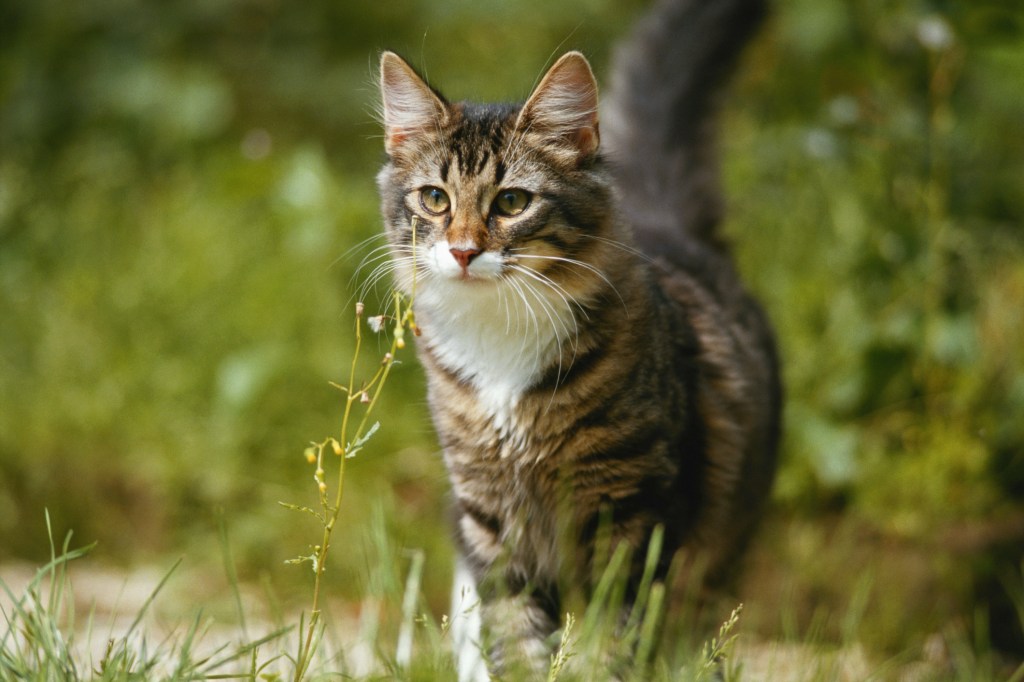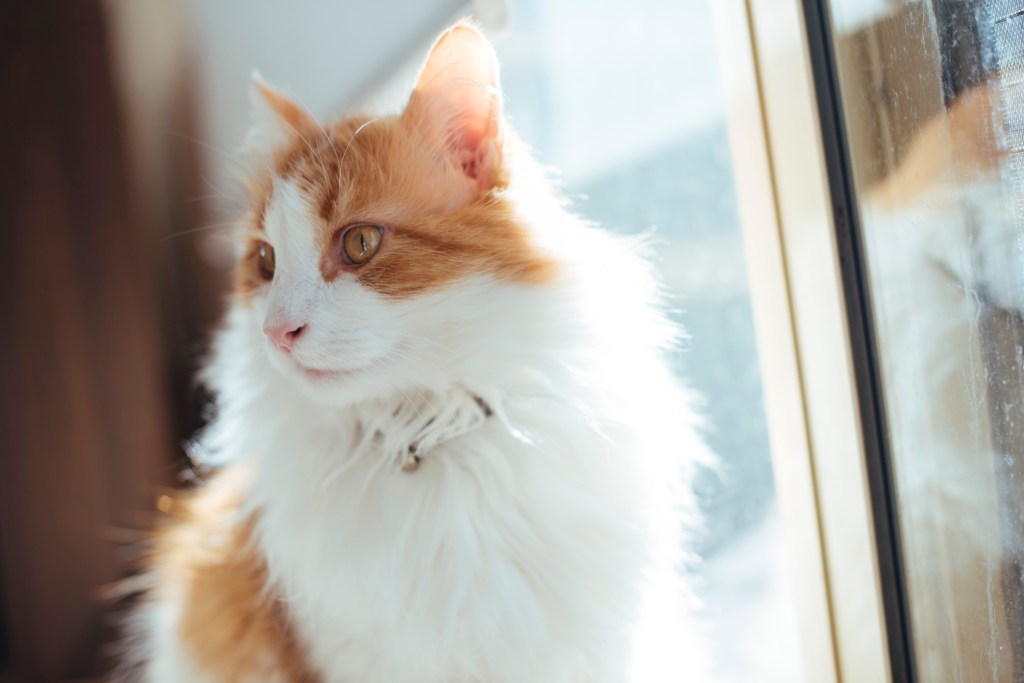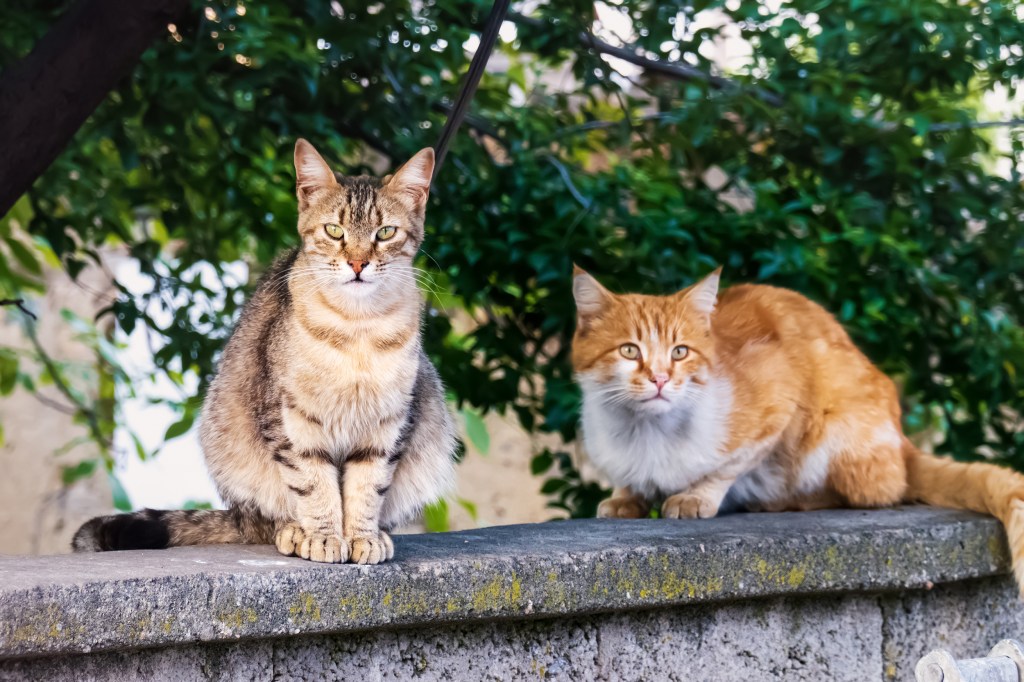All through historical past, felines have had a fairly wild and intriguing journey. Whereas one cat species has turn out to be domesticated, many others stay wild. Some have turn out to be extinct over time, whereas some proceed to inhabit our planet at this time, needing safety from human actions.
They’ve a ubiquitous presence within the wilderness of Africa, Europe, Asia, and the Americas, on the digital space of the internet, and even in our personal properties. Whether or not searching in jungles or amidst home vegetation, they’re an interesting group of creatures who evoke enchantment, thriller, and, at occasions, concern — primarily based on their measurement and ferocity.
The home cat holds the title of the world’s hottest pet, with over 600 million residing alongside humans worldwide. Actually, Cornell University experiences that just about three-quarters of homes in america have pets. And though elusive species just like the North American lynx could also be arduous to seek out, home cats — and even ferals — are present in nice numbers in developed areas.
So, let’s discover their varied sorts, together with wildcats, tabby cats, and each feral and domesticated felines. We’ll intention to uncover the variations between these teams and acquire perception into the evolutionary means of domestication that happens when sure species coexist carefully with Homo sapiens throughout generations.
The evolutionary journey of cats

The evolutionary journey of cats on Earth is depicted in fossil data and thru our inherent creativeness. This story continues to unfold at this time, proper inside our properties and throughout varied ecosystems worldwide. Felidae — the household of mammals throughout the Carnivora order — consists of each large and small cats. These animals are also known as “felids” and even “felines.” Their traits embrace various fur patterns, muscular our bodies, and claw and enamel sizes — all illustrating their identification as terrestrial carnivores.
Archeological data recommend the earliest cats originated someplace between 30 million and 28.5 million years in the past — with Proailurus being the oldest known cat. These historic creatures roamed what we now check with as Eurasia, with fossil remains discovered in France and Mongolia.
At present, 36 species of untamed cats exist, which embrace European wildcats, African wildcats (Felis silvestris lybica), lions, tigers, and lynx. There’s debate relating to additional subspecies classification. Nevertheless, they differ significantly from home cats (Felis catus) present in our properties at this time. So, how did we transfer from these early species to having domesticated cats, and what occurred through the interval in between?
What’s domestication
Domestication is the long-term relationship throughout generations, whereby one group of organisms beneficial properties appreciable affect over one other group’s copy and care, thereby securing a secure supply of sources. This process of innovation has significantly formed our society and is as necessary as discovering hearth and growing language.
Whereas there will be “semi-domesticated” people inside a sure animal species — resembling a pet leopard — this differs from “actually home animals” in human society. The latter is an evolutionary course of that’s seen even on the DNA sequencing stage of species and subspecies.
Domestication of cats around the globe

The proof of this course of is obvious within the genetic sequencing of modern-day cats. A research performed in 2007 by Science reveals home cats worldwide carry variations of their genome sequences. These variations are proof of their domestication historical past and breed evolution, primarily taking place within the Close to East. It’s believed this occurred concurrently early human settlements engaged in farming within the Center East. Right this moment, no matter their location, most cats are likely to be offsprings of the 5 “founder” felines from this area.
The controversy relating to the domestication of cats has been extremely disputed for a very long time. Nevertheless, advances in science and the power to review the cat genome have resolved this concern. It’s now evident all home cats — or home cats — have descended from Felis silvestris lybica.
This establishes that the connection between people and semi-domesticated cats dates again to greater than 10,000 years in the past. It’s notably fascinating to think about that home cats contribute minimally to human survival — a proven fact that has perplexed evolutionary biologists and sociologists for years.
Moreover, proof suggests a specific species of cat might have been domesticated concurrently on the Asian continent. The presence of cat stays in China may probably recommend the existence of a domesticated leopard species. This domestication is believed to have occurred individually from that of the Fertile Crescent, which later obtained sped up in Historical Egypt. Nevertheless, researchers have not found any proof linking present-day house cats to leopards, so the species might not have survived.
Have cats domesticated themselves
Right here’s an interesting reality which may not shock cat house owners: there’s proof indicating cats, in a manner, domesticated themselves. Primarily based on varied analysis findings, students suggest the speculation that cats, in impact, made themselves part of human communities roughly 10,000 years in the past. They had been probably drawn by the mice drawn to grain shops and leftover meals scraps close by.
Naturally, this results in a fairly attention-grabbing query: did cats, in reality, domesticate humans? It’s an amusing thought to think about. Regardless, there’s no denying people and felines have coexisted domestically for fairly a protracted time frame.
Analysis suggests a shift within the apply of domesticating cats over the previous 200 years has sadly had detrimental impacts on their well being. Most of at this time’s home cats are primarily stored indoors, neutered, and strictly bred for sure traits. A 2018 Danish study signifies a considerable improve within the prevalence of ailments amongst purebred cats.
The identical analysis additionally discovered that neutered cats are likely to exhibit behavioral issues extra typically. Summing up, plainly our current strategies of breeding cats not serve the animals’ greatest pursuits, however fairly worsen their welfare situations.
Are cats at this time wild or domesticated

Relying on the species and their historic interplay with people, some cats could also be wild, and a few domesticated. Just a few people would possibly even fantasize about proudly owning a pet tiger or leopard, nonetheless, these animals aren’t domesticated. Generally, it’s extremely merciless to restrict these majestic creatures to captivity. The Western world obtained an interesting, but considerably disturbing perception into this topic by way of the documentary sequence “Tiger King,” which went viral through the early section of the COVID-19 pandemic.
Furthermore, if you happen to’re contemplating bringing a feline into your life, you have got an unlimited number of home cats to select from. Round 42 cat breeds are acknowledged by veterinarians. Cat house owners get pleasure from quite a lot of persona traits, whether or not it’s the calming purr, the distinctive “M” on a tabby cat’s brow, or their knack for hunting and killing pests, to say a number of.
That being stated, home cats signify a serious enterprise with the most expensive breed being the Ashera cat. This breed is a novel genetic mixture of home and wild cats and may price as much as $125,000. The prices don’t finish at buy — pet care additionally includes a big monetary dedication.
Throughout the pandemic, the pet trade, specifically, skilled a substantial surge, with the wealthy members of society spending extra time at residence with their pets. In 2020 alone, this trade exceeded a staggering 100 billion dollars — making an allowance for prices like meals and vet appointments.
Moreover, feral cats are fairly frequent. These are domesticated felines who aren’t owned and keep away from human interplay. Feral cats can pose a significant problem for metropolis planners, with their populations going up in some elements of the world. They’ll trigger main points by carrying ailments and probably threatening local bird populations.
The continuing journey of people and felines
Cats and people share a prolonged historical past marked by intriguing chapters, twists, and turns. This journey continues to unfold in our trendy period. As we transfer towards the longer term, we should make decisions that may decide not solely our destiny as a species but additionally the future of those marvelous cats and numerous different organisms. The existence of those creatures delicately is dependent upon our human capability for change and restoration.
